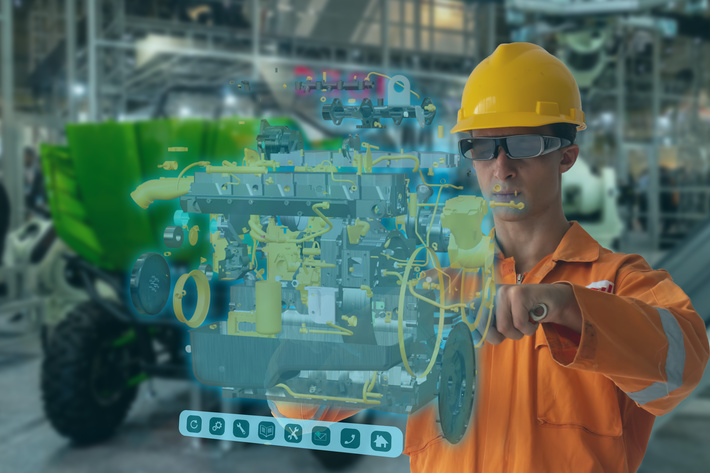
The adoption of technology in the Manufacturing Industry has been slow, but steady. Technology adoption has been relatively faster when it has helped improve productivity, boost quality, and reduce costs. Industry CXOs are convinced that IT has a major role to play in manufacturing, but less than 30 percent of manufacturers have adopted Industry 4.0 technologies.[i] Now, with COVID-19 disrupting supply chains, manufacturers are being forced to examine virtualization and automation opportunities for their plants and MES in a bid to make them more resilient.
The problem is that many manufacturing organizations have created home-grown tools around Manufacturing Operations Management (MOM). These solutions cannot withstand the shock of COVID-19 type disruptions. They need to evolve into Smart Manufacturing systems. This is why, now is a good time to invest in full-fledged MES that leads to a connected, transparent, optimized and agile organization.
There are pockets in the manufacturing sector that appreciate the potential of MES. However, most are still improving their understanding of MES and how it can extract benefits across the supply chain.
At KONE, the Finnish engineering services organization known for its moving walkways and elevators, MES has been used as a starting point for its transformation to a digital factory. MES is not only about tool implementation, says Martin Navratil, Director, Manufacturing Network Development, who has been implementing MES at KONE for a few years now. It is about the commitment of leadership and change management.[ii] KONE embedded MES into its manufacturing strategy to access real time data while executing processes in their warehouse or during production on the shop floor. The availability of continuous data (during a shift, day-wise, week-wise, etc.) has improved efficiency and responsiveness to customer needs. Navratil says that MES has made an impact in four areas:
- Driving collaborative innovation: MES is the foundation to bring digital competencies into the organizations by synchronizing the processes, tools, materials, equipment and people on a global scale.
- Enabling a service mind set: MES connects geographically dispersed factories, putting an end to unsustainable and fragmented systems. The flexibility it provides supports a service mind set.
- Building customer centric solutions: MES minimizes the cycle time and improves responsiveness. It also provides data to continuously drive a Lean and Six Sigma culture to improve quality.
- Fast and smart execution: MES provides maximum transparency to customers regarding deliveries. Real time data is visually available to everyone, allowing the organization to put the customer at the center of the operations, reduce time to market and create customer trust.
MES places real time data into the hands of the organization, allowing it to become intelligent and exploit opportunities for faster improvement. Not only can supervisors monitor production during a shift (to achieve targets or improve asset utilization) but they can also transfer the granular data to other parts of the organization such as the maintenance and engineering teams for faster service response and to enable continuous improvement. The data also introduces great traceability, leading to excellence in delivery. MES has brought many more opportunities to achieve better results, observes Navratil.
For manufacturing organizations, MES is strategic to changing the way of working and to increase technological maturity an essential pre-condition to the adoption of Industry 4.0 technologies. KONE provides an example of how MES can impact the organization and make it future ready.
[i] https://iot-analytics.com/industry-4-0-adoption-2020-who-is-ahead/
[ii] https://www.youtube.com/watch?v=BYmpRt9BtsA&list=PLAqtx75lIaRK5…
Co-Authored by:
Martin Navratil
Director, Manufacturing Network Development, KONE
Pareekh Jain
Founder and Lead Analyst, EIIR Trend
Nitin Kumar Kalothia
Associate Partner, Business Consulting Group, ITC Infotech
